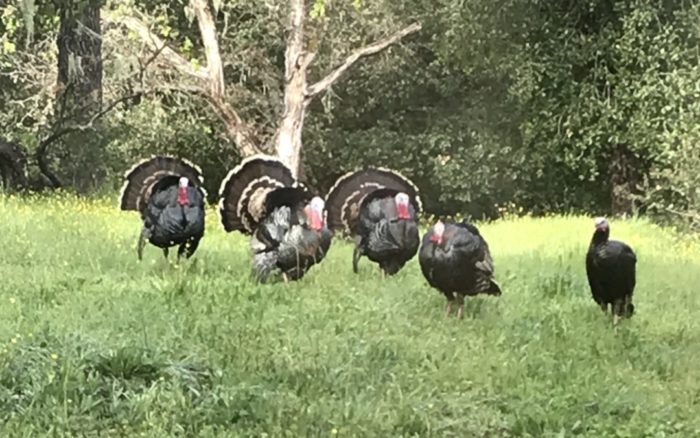What Big Decisions Are Being Made in the Oak Woodlands?
There is a difference in crowds when the immediacy of the issue will impact them profoundly. James Conaway, author of the trilogy on Napa County agriculture and particularly the impact of the wine industry on the community, has been reading from his book to standing room only crowds in Napa County since its release last Tuesday, March 6. The Napa Main Library reading on Saturday turned large groups of people away because the room was packed. At the League of Women Voters and Sierra Club sponsored panel discussion on Measure C (Watershed and Oak Woodland Protection) Monday evening, March 12, people stood two and three deep at the open doors, sheltering under umbrellas, as Conaway and several others addressed some of the facts of the Measure. Of course, the wine industry was there, hoping to persuade citizens that Measure C will endanger profits and the benefit of the wine industry to community. But the fervency of citizens to listen and learn, to feel they have a voice, was also there, and that fervency is the very meat of Conaway’s message: Wake up, Voters! It is not too late! Corporate and wealthy greed need not eclipse the environment and the needs of the community. Educate yourself! Use the ballot!
Conaway’s books are an education in the history of the current political situation around land use issues in the Napa Valley. Napa At Last Light: America’s Eden in an Age of Calamity has a particularly dark tone, urgent, we can’t wait! Measure C and Measure D (no private heliports) are two of the most immediate opportunities that citizens have a chance to weigh in.
Tuesday evening’s Berkeley reading was to a different audience, one mostly not steeped in consequences of the decisions being made in Napa County. Conaway expanded to a larger overview: Napa is a microcosm of what is happening in our country, in our world. This is why it is so important citizens, vintners, and growers alike wake and act– and many in these groups are. Corporate interests and those of the newly arriving very wealthy are profit and/or ego oriented (lifestyle vineyards). Responsible farming considers the whole: water, soil, and the impact on one’s neighbors.
Big money bullies to get its way, mixing that all to familiar heady cocktail of false facts and fear: threats of loss of property rights, threats of ruin of the wine business if we protect the hillsides and the source of our water–the watersheds. It will hurt the small farmer, the small wine maker, they claim. But the truth is, corporate interests are what have hurt the small farmer/grower/wine maker. What we are farming now is tourists, not grapes. Vineyards have become fronts for development. The definition of agriculture has been perverted to include disneyland-like event centers because wineries claim they need “direct-to-consumer marketing” to survive– and in the ecologically rich and fragile hillsides. Sadly, the proponents of these perversions are willing to sacrifice our water supply, our hillsides, and our community, for their agendas.
But citizens have the vote. There are more of us than there are of these wealthy interests.
We are being faced with the necessity of considering the impact of our actions on each other and on the environment, of recognizing our own greed and willful ignorance. Our personal interests cannot eclipse those of the whole, or we all will go down. Nature has the final say.
